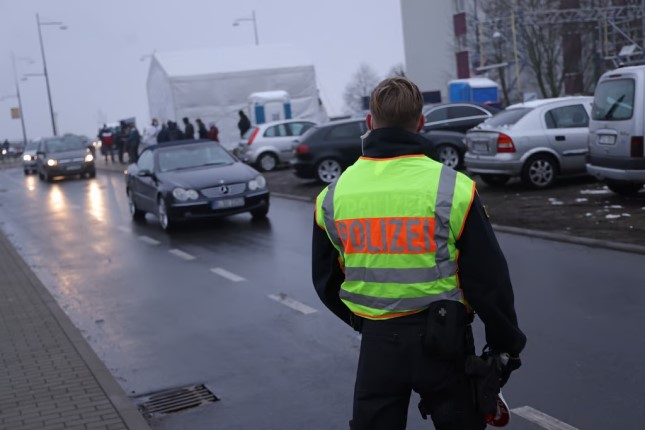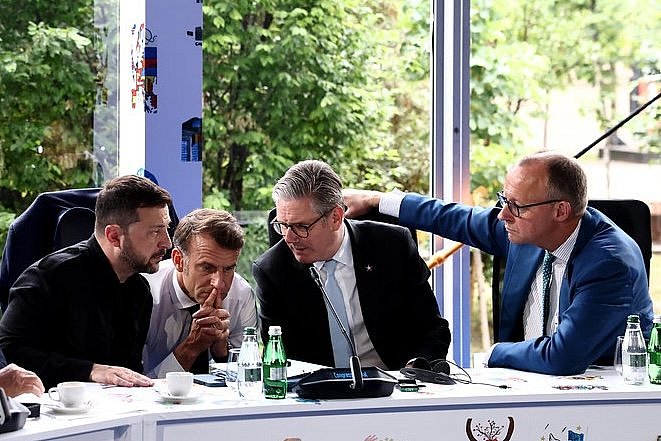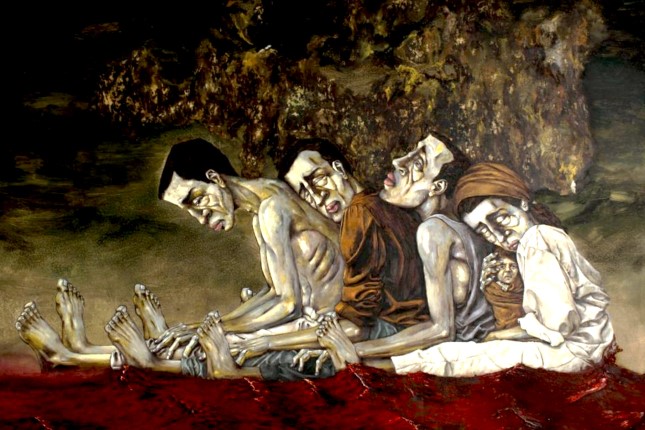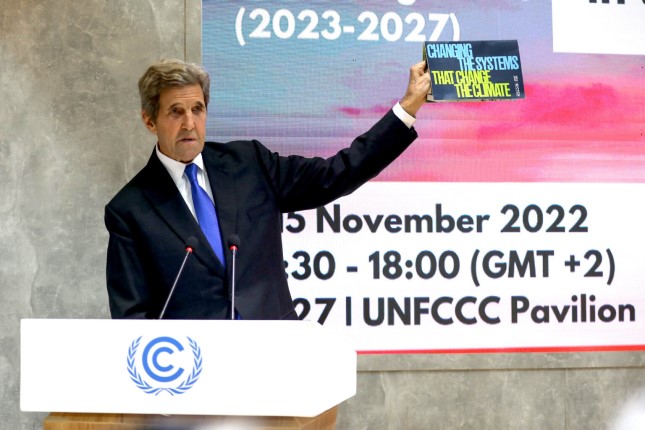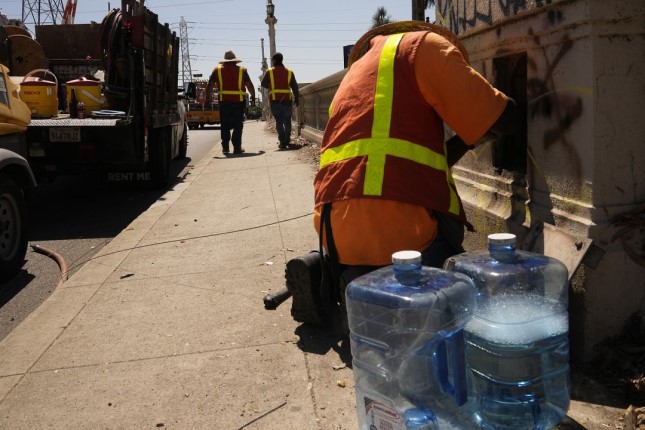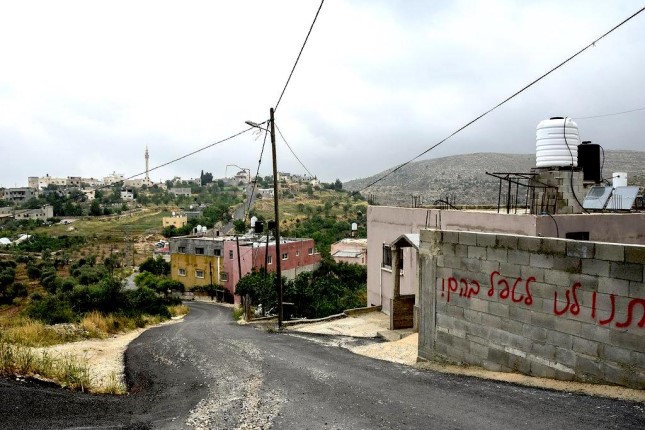BERLIN — German Interior Minister Nancy Faeser announced Wednesday temporary checks on Germany's borders with Poland and the Czech Republic in an attempt to curb an influx of asylum seekers.
Faeser told reporters in Berlin that “flexible spot checks” at the two borders would start “with immediate effect.” She added that these controls would alternate between different border crossings to crack down on human traffickers but also aim to have “as little as possible impact on people and the economy.”
German leaders have come under increasing pressure to crack down on the growing numbers of asylum seekers, many of whom are now crossing the borders of Poland and the Czech Republic. Some 204,000 people requested asylum in Germany within the first eight months of 2023, 77 percent more than the same period last year.
German politicians are making a particular effort to sound tougher on migration ahead of state elections in Bavaria and Hesse on October 8.
At a political rally in Bavaria over the weekend, German Chancellor Olaf Scholz linked the border crisis with an alleged visas-for-bribes scandal that has rocked Poland’s anti-immigrant government.
“I don’t want Poland to simply wave people through and then have a discussion about our asylum policy afterwards,” Scholz told a crowd in Nürnberg. Scholz demanded the Polish government “clarify” recent accusations that officials in Polish consulates doled out large numbers out visas across Africa and Asia, granting access to the EU in exchange for bribes.
Members of Poland’s right-wing Law and Justice (PiS) party reacted angrily to Scholz’s suggestion the border crisis is connected to the visa corruption scandal, with Poland’s foreign minister, Zbigniew Rau, asking the German chancellor to “refrain from statements that damage our mutual relations.”
The issue of border controls promises to be of particular sensitivity in Poland, which is holding a parliamentary election on October 15. In the lead up to the election, members of the PiS party have tried to whip up Polish voters with anti-German rhetoric and by demanding reparations for Nazi Germany’s crimes.
Warsaw is even weighing up whether to go one step further by threatening to "seal" the border with Germany from its side to deter any migrants in Germany from trying to come into Poland.
Rafał Bochenek, a spokesperson for PiS, said Poland may limit access on its western border because of the “gigantic influx of illegal migrants [into Germany] over the past few years.”
“The government is analyzing this issue, taking a hard look at the situation,” he told the Radio Plus network.
It's a high-stakes political balancing act as the imposition of spot checks may further inflame tensions between the countries. Poland's ruling party could also lose support among people who blame PiS's confrontational approach to Berlin for their loss of easy border crossings.
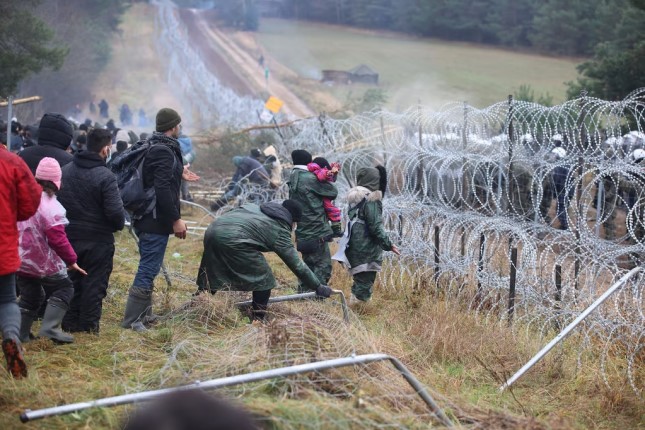
The "temporary controls at selected border crossings" in Germany will begin "within the next days". Photo: Leonid Shcheglov / AFP via Getty Images.
Czech Interior Minister Vít Rakušan said Monday that Czech police will cooperate with their German counterparts on the border checks. Faeser has sought a similar cooperation with Poland, but has not yet managed to reach an agreement, the German official said.
For Scholz and his interior minister, both members of Germany’s center-left Social Democratic Party (SPD), the tougher stance on migration may have a great deal to do with the SPD’s flagging poll numbers.
Faeser is the SPD’s the lead candidate in Hesse and is running to be that state’s premier. But the SPD has fallen to only 19 percent in that state while the far-right Alternative for Germany (AfD) is at 16 percent, according to an average of state polls compiled by POLITICO’s Poll of Polls.
The SPD is also struggling on a national level, and is polling at 17 percent, behind the AfD, which is at 21 percent.
Using spot checks rather than more comprehensive border controls allows Germany to circumvent rules that require European Union member states to give one-month notification to the Commission before introducing border controls within the EU’s Schengen passport-free travel area, a German official told POLITICO.
Main photo: German Interior Minister Nancy Faeser will announce temporary checks on Germany's borders with Poland and the Czech Republic © Sean Gallup / Getty Images.
Source: Politico.
